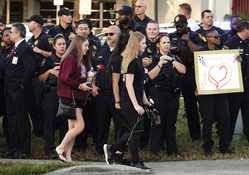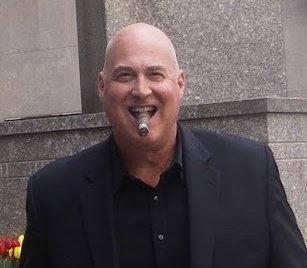March 01, 2018
Twenty years ago, my team built RU Ready High School, a mock-up of a high school used to train police and emergency personnel to respond in active shooter events -- really a place where society’s sheepdogs were trained to protect the flock from wolves. It was the first of its kind, built in response to the massacre at Columbine High School, in which two deranged students killed 12 classmates and a teacher. Since then, there have been 208 more school shootings.
The cringe-worthy litany of government failures preceding the latest attack in Florida should offend every American, across the political spectrum. The unhinged perpetrator signaled his intent, even reportedly telling acquaintances, “I’m a school shooter.” A woman who knew him told an FBI tip line on January 5, 2018 that she was worried about him going “into a school and just shooting the place up.” And yet, despite these signals and at least 30 law enforcement visits to the attacker’s home since 2011, he passed a gun background check and obtained a new semiautomatic rifle in February 2018. How much more notice do the FBI and local sheriffs’ offices need to prevent such telegraphed attacks?
The government also failed on the day of the tragedy. We saw from surveillance video that the armed Broward Sheriff school resource officer assigned to Marjory Stoneman Douglas High School failed in his duties, remaining outside as students and faculty were killed. The next three Broward deputies to arrive also remained outside the attack zone. Their complete gross negligence is a rare, but sad, blight on their profession.
We now know that gun-free zones, though well intentioned, do not prevent attacks. There is actually evidence that killers are drawn to gun-free zones, where they’re less likely to be confronted by another person carrying a gun.
A gun ban would not work either. Even in the unlikely event that our Constitution’s Second Amendment could be repealed and a complete gun ban implemented, there are already at least 350 million firearms in the U.S. Millions more would continue to leak across our porous borders alongside the billions of dollars in illegal drugs.
More laws and restrictions of any kind won’t help when enforcement fails to prevent attacks, and waits outside for the danger to subside.
In comparison to the failures of the FBI and Broward Sheriff, Aaron Feis, an assistant coach at Stoneman Douglas, used his body to shield students from the murderous fire. He should have been afforded the opportunity to be armed and prepared. Then he could have stopped the tragedy immediately, instead of forcing victims to suffer through six minutes of horror caused by the friction of surprise and cowardice.
We need to develop an immediate response system to limit the damage a deranged killer can cause. Logic shows that the most effective preventative measure possible is defensive security as close to the point of danger as possible: that when mass killers are confronted by armed force, the attack ends quickly. That happened at a school in North Carolina in 2006, in Salt Lake City in 2007, and at a shop in upstate New York in 2010.
A parallel for aviation, the Federal Flight Deck Officer Program, was initiated after terrorists used commercial airlines against our country on 9/11. The program provides for special vetting and training to allow volunteer pilots to keep a pistol secured in a lockbox in the cockpit. They thereby ensure their aircraft will never be used as a suicide missile.
We should adapt a similar approach to protect America’s children.
Volunteer faculty, administrators or school staff could be vetted with a simple additional background check and psychological screening. Local law enforcement or contract instructors would conduct training cheaply at area ranges. Live fire weapon proficiency and scenario training on mobile video simulators or with virtual reality goggles would prepare the defenders for success at their moment of truth.
This should not be a top-down, dictated federal solution. States, counties and municipalities are in a better position to adapt practical defensive solutions adapted from best practices. Wyoming will certainly handle this differently than Connecticut. Some will depend on resilient faculty or parents, while some will opt for armed contracted guards. The most important thing is to be practical, not emotional, about what actually works.
Our nation has endured and flourished because people of goodwill adapt and innovate productive solutions to our nation’s problems—not because of top-down dictates. We protect our banks, hospitals and airports with armed personnel; surely, we can do more to protect schools, which teach our nation’s most valuable resource.
Readiness is an oft-mentioned—but frequently ignored—necessity. We also need perspective. As horrid as the mass shootings are, the best thing you can do to protect a child from sudden death is to teach them to swim. That’s right: drowning kills about 500 times more children every year than school shootings. We need to be calm in our analysis, and get on with what America does best: solving our problems and moving forward.
Erik D. Prince is a former Navy SEAL and founder of Blackwater security company. He is the brother of Secretary of Education, Betsy DeVos.




 RSS Feed
RSS Feed
